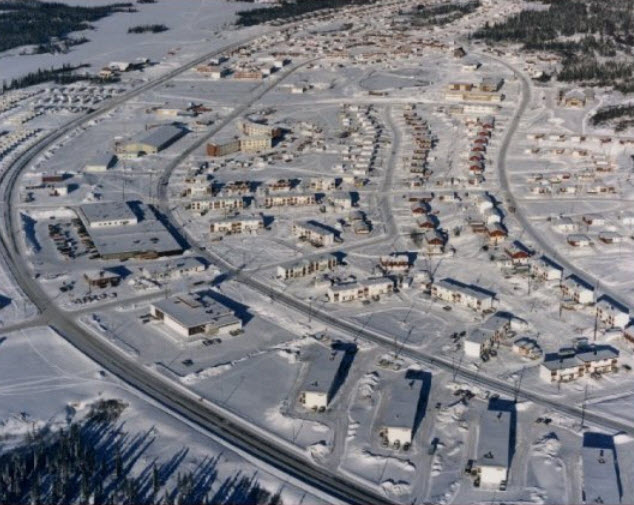By 1980, most of the jobs in Quebec were in the tertiary sector (services). This sector drove the main engine of the Quebec economy. Times were difficult for the mining and forestry industries that were part of the primary (resource extraction) and secondary (processing resourcesResources are anything taken from the earth or nature that people need, use, and are "valued"....). Like most jobs in these sectors, jobs were far from major centers, and it became difficult for Quebec regions to keep their economies going.
Mining
In 1980, mining no longer played a major role in the Quebec economy. Only a few regions produced mineral resourcesResources are anything taken from the earth or nature that people need, use, and are "valued".... such as iron on the North Shore and copper, zinc and gold in Abitibi. As the Quebec mining industry exported more and more of its resourcesResources are anything taken from the earth or nature that people need, use, and are "valued"...., it became more and more dependent on the world markets and the demands of other countries. The global context of the 1960s and 1970s resulted meant that the metals mined in Quebec were less in demand. For example, it was discovered that asbestos was dangerous for the healthHealth is when you are free of injury, and physically and mentally well. Healthy eating means... of miners and users. This greatly affected Quebec’s asbestos mining sector because asbestos was hardly used anymore.

Forestry
Forest industries also turned to exporting, this sector also experienced difficulties. First, the mechanization of the industry after World War II resulted in the loss of many jobs even if production was increasing. The pulp and paper and wood products sector were doing well but faced stiff competition from the United States. Despite this, the industry still employed many people, especially in more remote regions.
AuthorAuthor - A person who writes something Auteur - Une personne qui écrit quelque chose: Alexandre Lanoix







